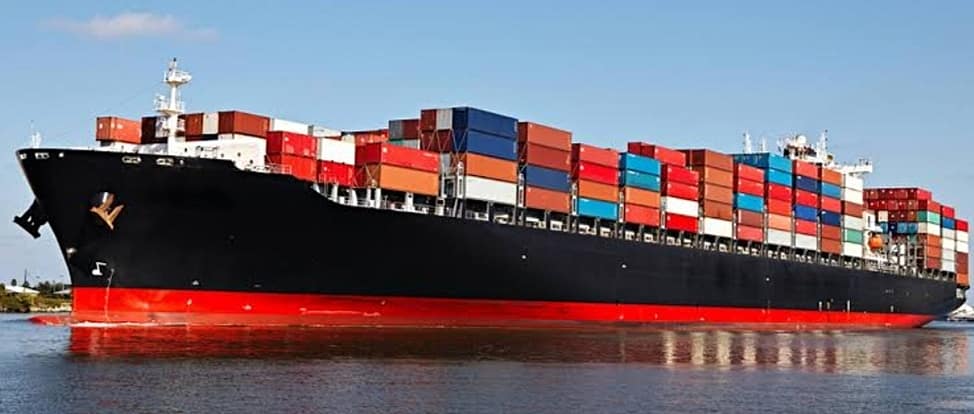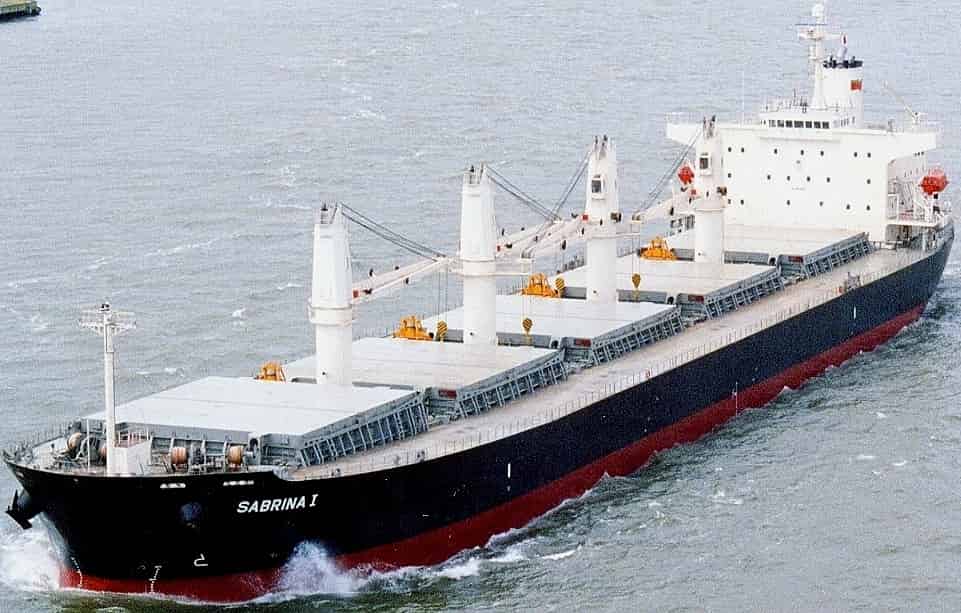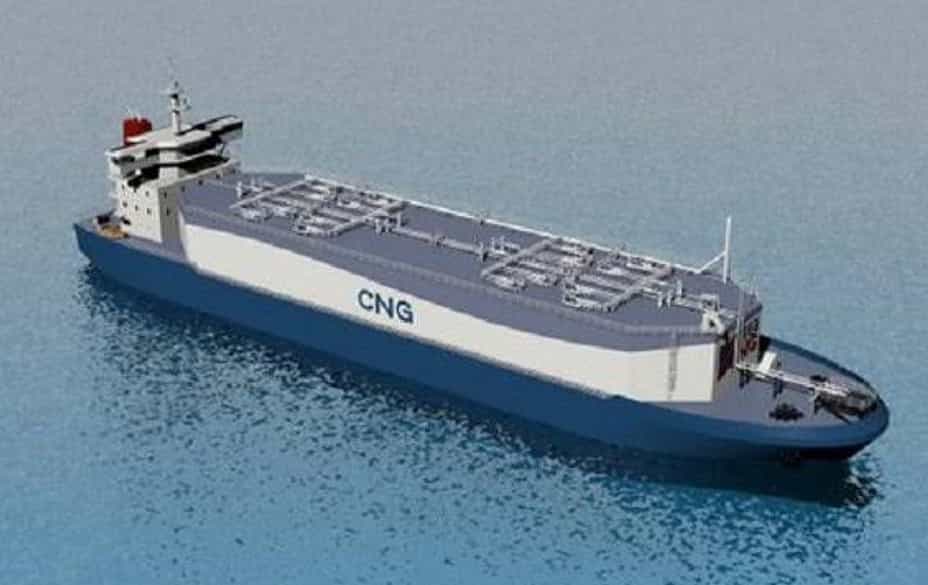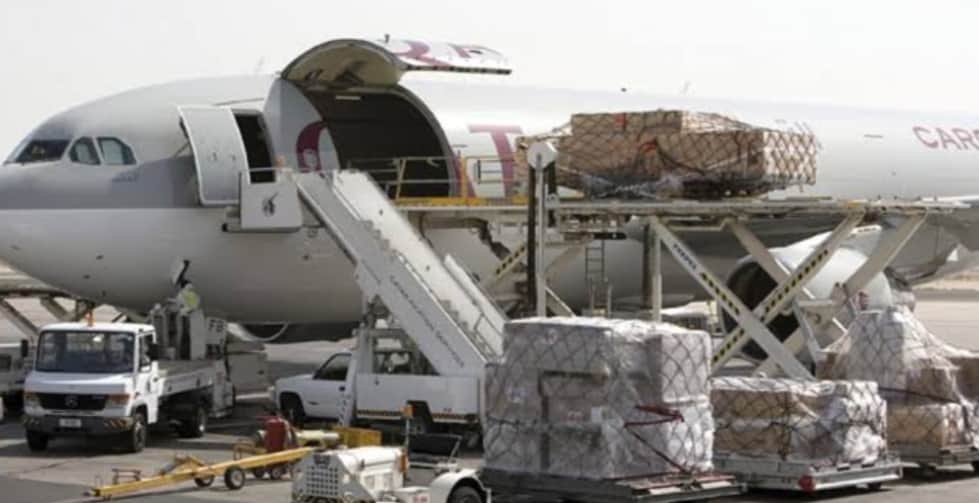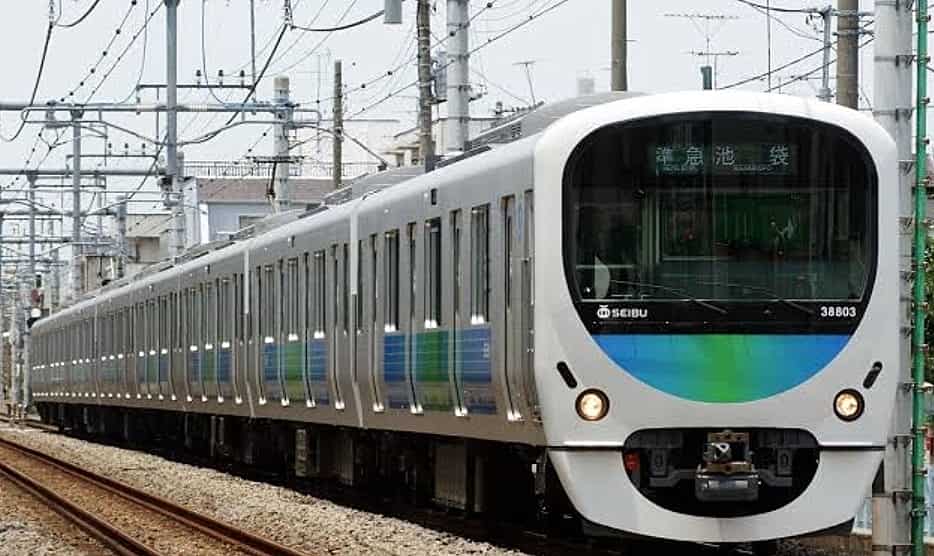1. Sea Transport
Waterways are normally used as a transport route for goods with no time constraints but the goods require high capacity. It is the transportation of goods across the ocean with the help of container or cargo ships. Sea freight is one of the most cost-effective types of shipping. It accounts for an estimated 90% of all transported goods from which 70% are shipped as containerized cargo. Sea freight can carry high-volume of goods such as salts, grains, wood, fertilizers, and animal feed. All the products that cannot be transported by air transport due to security reasons can often be transported by this route. Types of Sea freight Bulk carriers, VLCC, LNG, CNG carriers, and RORO (Roll-On Roll-Off).
1. Bulk carriers:
This transport is used to transport bulk cargo such as cement, grains, and ores. These items or products are transported in the ship’s holds as loose cargo.
2. VLCC, LNG, and CNG carriers:
VLCC stands for Very Large Crude Carriers, which are large to very large crude oil tankers. While LNG and CNG carriers are ships used in the transport of bulk gases. They are used to transport gases like Liquified Natural Gas (LNG), Compressed Natural Gas (CNG), or Petroleum Gas (LPG).
3. RORO services:
This service involves large ships used to transport automobiles in bulk. After the ship reaches its destination. The automobiles are taken out to their respective yards for subsequent collection and storage by the customer.
Advantages of Sea transport
The following are some of the advantages of Sea transport.
- Sea transport important role in the international trade of any country.
- It provides the highest carrying capacity, as it can carry several airplanes as well.
- As compared to the other mode of transport sea transport has less operating cost.
- It does not require investment for their maintenance.
- No problem of traffic is involved.
Disadvantages of sea transport
The following are some of the disadvantages of sea transport.
- This transport doesn’t offer any scope for extension.
- Perishable goods cannot be sent by sea route as it is the slowest mode of transport.
- Sea transport involves many formalities to be complied with in sending shipments.
- Sea transport is affected by weather and climatic conditions.
- The political conditions may also become barriers to this transport.
2. Air Transport
Air transport contribution has been made as it also increases in the growth of trade and industry throughout the world is significant. This transportation is the fastest but also it is an expensive way of transport. Because of its high costs and emissions air transport is mainly used for long distances. Air transport is used for both passenger and cargo aircraft to deliver quickly transport shipments around the world. Air transport can be a time-efficient form of shipping ideal for those with tight deadlines to meet, goods destined. This kind of transport is suitable for sensitive, valuable goods and perishable items. Air transport is very reliable and safe. Types of Air Cargo. Air cargo is classified as general cargo and special cargo.
1. General air cargo:
This air cargo does not require any special conditions for its transport by aircraft. Such as humidity-controlled containers, temperature, special packaging, and more. Examples include dry foods, electronics, and other general items or products.
2. Special air cargo:
This air cargo requires special conditions for its transport. It normally requires extra labeling, extra packaging, and documentation. Examples include flowers, certain chemicals, and livestock.
Advantages of Air Transport
The following are some of the advantages of air transport.
- It provides maximum safety.
- Air transport is the fastest mode of transport.
- Air transport major role in promoting international trade.
- Usually, air transport has no physical barriers as the path is always free.
- This air transport is suitable and is best for perishable commodities.
Disadvantages of Air Transport
The following are some of the disadvantages of air transport.
- Compared to ships air transport is much less capacity.
- The formalities to be complied with are huge.
- Air transport is also affected by bad weather conditions.
- This transport cannot connect all marketplaces.
- Air transport t rates are very high, and low-value goods by this mode will not be economical.
3. Truck Transport
Truck transport takes the largest share in transport logistics. It is the simplest way to transport goods and also the most economical for short distances. In this transport, the delivery of the item or product is direct to the customer without any further handling. Truck transport is flexible and is suited as part of intermodal transport.
Advantages of Truck Transport
The following are some of the advantages of Truck transport.
- Allows for a complete door-to-door service.
- Highly cost-effective and economical especially over short distances.
Disadvantages of Truck Transport
The following are some of the disadvantages of Truck transport.
- Transport times can be affected by uncontrollable circumstances like weather and traffic.
- Limited capacity.
4. Rail Transport (Railway)
In this transport goods are transported by freight trains over the railway track. Rail transport is considered one of the most environmentally friendly modes of transport. In this transport, special refrigerated wagons, tank wagons, and bulk freight wagons are used for the transport of liquid or gaseous goods.
Advantages of Rail Transport
- Rail transport is not affected by traffic or weather.
- Rail transport is capable of transporting the equivalent of 400 trucks worth of cargo.
- When transporting goods across long distances this source is cost-effective.
- This transport is environmentally friendly.
Disadvantages of Rail Transport
- Abnormal cargoes cannot be moved in normal rail wagons, it requires specialist equipment.
- Not economically applicable across shorter distances.
